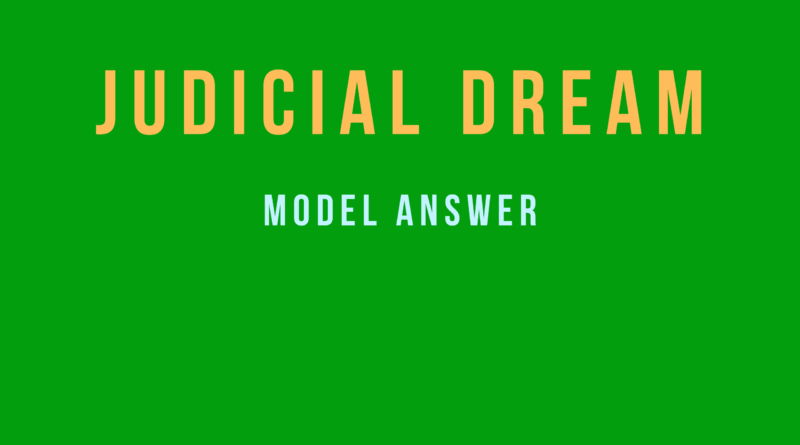DOCTRINE OF ESCHEAT
Write a short note on Doctrine of escheat.
According to Indian legal system, a property cannot remain an ownerless. If a person acquires any property, he not only acquires the right of ownership but he also acquires right of possession as well as a right of alienation. If a person owns the property then he has right to alienate that property during his lifetime.
Even before his death, he can decide that after his death, his property will be given to such particular person.But if a person does not alienate the property during his lifetime and he dies intestate then in such a case according to some laws, his property is given to his legal dependents.
Hindu Succession Act, 1956, deals with the provisions of the devolution of property. According to Section 30 of this act, a person can be bequeath his property by will. It does not matter whether such property is an undivided share of joint family property or a separate property.
Moreover according to this act, if a person dies intestate then in such a case, his property is devolved upon his class 1 heirs. But if there is no class 1 heirs of a deceased person then in such a case the property is a devolved upon class- class 2 heirs. Sometimes a deceased person does not have class 1 as well as class 2 heirs.
In such a situation his property is devolved upon agnates and if there are no agnates then his property is a devolved upon cognates. But according to Section 29 of Hindu Succession Act, 1956, if there is no qualified heir of a deceased, means if he does not have class 1 , class 2 heirs, agnates and cognates, then in such a case the property will devolve on the government. This basically is the doctrine of escheat.
If a property is devolved upon government then government takes the property subject to all the applications and liabilities and government has to fulfil all the obligations and liabilities of a deceased person.
In the leading case of State of Punjab vs Balwant Singh[(1992) Suppl. (3) SCC 108], The Supreme Court held that, “the State does not take the property as the Rival for preferential hair of deceased but as a load Paramount of the whole soil of the country.”
In the leading case of State of Bihar vs Radha Krishan Singh[(1983) 3 SCC 118], The Supreme Court held that, “Section 29 comes into operation only on their being a failure of heirs. Failure means total absence of any heir. When a question of escheat arises, the onus rests heavily on the person who asserts the absence of heir qualified to succeed to the estate of the individual who has died intestate, to establish the case. The law does not readily accept such a consequence.”


